All Stories
-
 Science & Society
Science & Society‘The Origins of You’ explores how kids develop into their adult selves
A new book describes the interplay of nature and nurture as children, at least in Western societies, grow up.
By Bruce Bower -
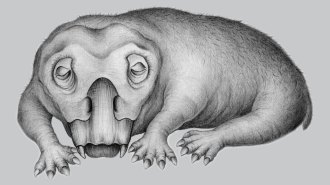 Paleontology
PaleontologyAncient Lystrosaurus tusks may show the oldest signs of a hibernation-like state
Oddball ancestors of mammals called Lystrosaurus might have slowed way down during polar winters.
By Susan Milius -
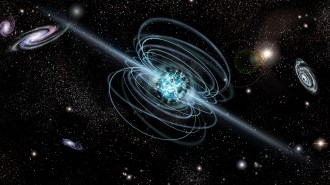 Space
SpaceNeutrinos could reveal how fast radio bursts are launched
Highly magnetized stellar corpses called magnetars may be the source of two different cosmic enigmas: fast radio bursts and high-energy neutrinos.
-
 Tech
TechA Game Boy look-alike runs on solar panels and button smashes
A new prototype console that looks and feels like the original Game Boy harnesses user-generated energy to run without batteries.
-
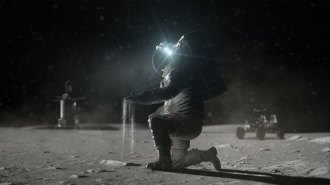 Space
SpaceHow do you clean up clingy space dust? Zap it with an electron beam
An electron beam is the newest addition to a suite of technologies for cleaning sticky and damaging lunar dust off surfaces.
By Jack J. Lee -
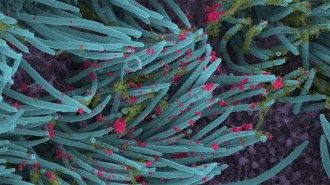 Health & Medicine
Health & MedicineLung cell images show how intense a coronavirus infection can be
Microscopic views reveal virus particles coating the hairlike cilia of an airway cell from the lungs.
-
 Space
SpacePhosphine gas found in Venus’ atmosphere may be ‘a possible sign of life’
Astronomers have detected a stinky, toxic gas in Venus’ clouds that could be a sign of life, or some strange unknown chemistry.
-
 Earth
EarthEarth’s rarest diamonds form from primordial carbon in the mantle
Chemical analyses of the rarest diamonds suggest the planet’s carbon cycle may not go as deep as scientists thought.
-
 Health & Medicine
Health & MedicineTreatments that target the coronavirus in the nose might help prevent COVID-19
Scientists are developing and testing ways to prevent the virus from settling in prime nasal real estate.
-
 Health & Medicine
Health & MedicineCollege athletes show signs of possible heart injury after COVID-19
Four of 26 college athletes, who had mild or asymptomatic COVID-19, may have had myocarditis, an inflammation of the heart muscle.
-
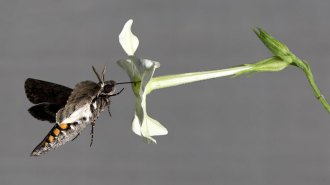 Environment
EnvironmentThis moth may outsmart smog by learning to like pollution-altered aromas
In the lab, scientists taught tobacco hawkmoths that a scent changed by ozone is from a favorite flower.
By Carmen Drahl -
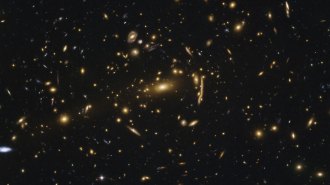 Space
SpaceDark matter clumps in galaxy clusters bend light surprisingly well
Cosmologists have found one more way to be confused by dark matter.